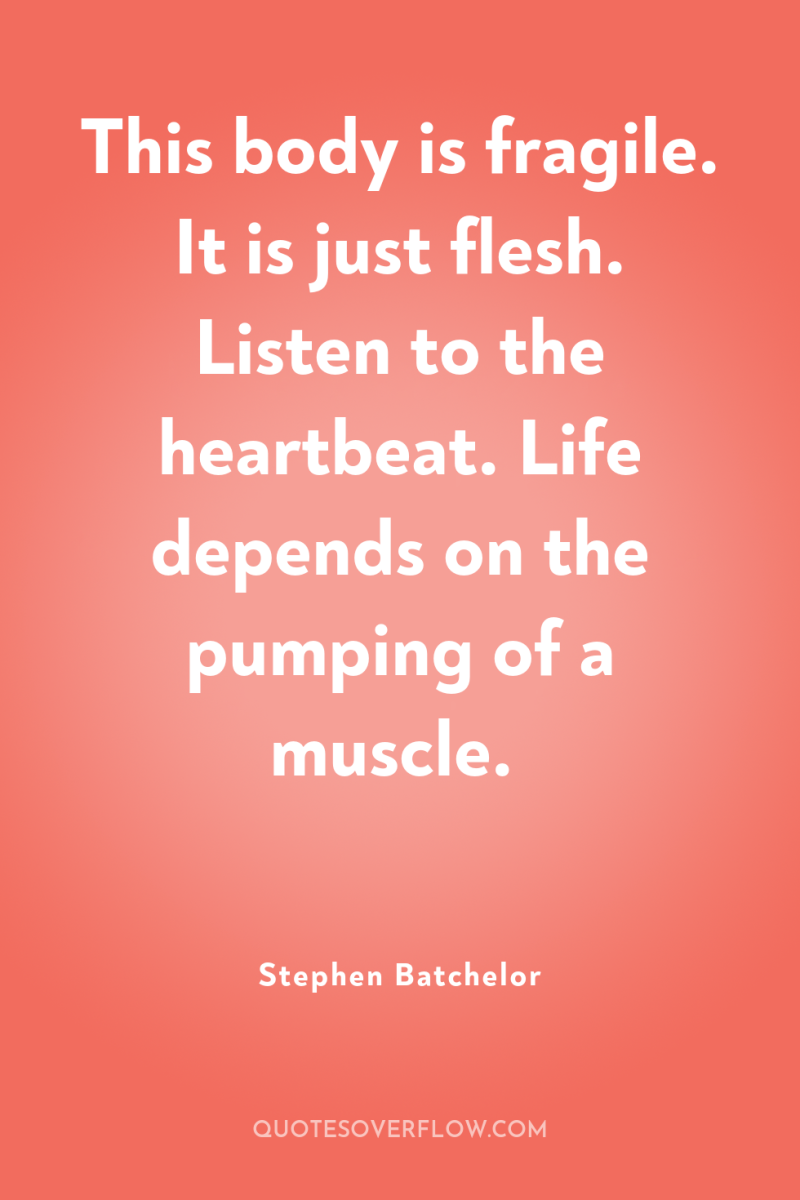
1
This body is fragile. It is just flesh. Listen to the heartbeat. Life depends on the pumping of a muscle.Stephen Batchelor
2
A person who is asleep is either lost in deep unconsciousness or absorbed in a dream. Metaphorically, this was how the Buddha must have seen both his previous self as well as everyone else he had known: they either were blind to the questions of existence or sought consolation from them in metaphysical or religious fantasies.Stephen Batchelor
3
Letting go of a craving is not rejecting it but allowing it to be itself: a contingent state of mind that once arisen will pass away. Instead of forcibly freeing ourselves from it, notice how its very nature is to free itself. To let it go is like releasing a snake that you have been clutching in your hand. By identifying with a craving ('I want this, " don't want' that"), you tighten the clutch and intensify its resistance. Instead of being a state of mind that you have, it becomes a compulsion that has you. As with understanding anguish, the challenge in letting go of craving is to act before habitual reactions incapacitate us.Stephen Batchelor
4
We are participatory beings who inhabit a participatory reality, seeking relationships that enhance our sense of what it means to be alive. In terms of dharma practice, a true friend is more than just someone with whom we share common values and who accepts us for what we are. Such a friend is someone with whom we share common values and who accepts us for what we are. Such a friend is someone whom we can trust to refine our understanding of what it means to live, who can guide us when we’re lost and help us find the way along a path, who can assuage our anguish through the reassurance of his or her presence. .Stephen Batchelor
5
One of the most difficult things to remember is to remember to remember. We forget that we live in a body with senses and feelings and thoughts and emotions and ideas. We get caught up in rumination and fantasy, isolating us from the world of colors, shapes, sounds, smells, tastes, and sensations constantly bombarding our input sensors. To stop and pay attention to the moment is one way of snapping out of these mindscapes, and is a definition of meditation. This awareness is a process of deepening self-acceptance. Whatever it observes, it embraces. There is nothing unworthy of acceptance. .Stephen Batchelor